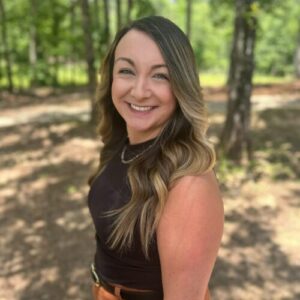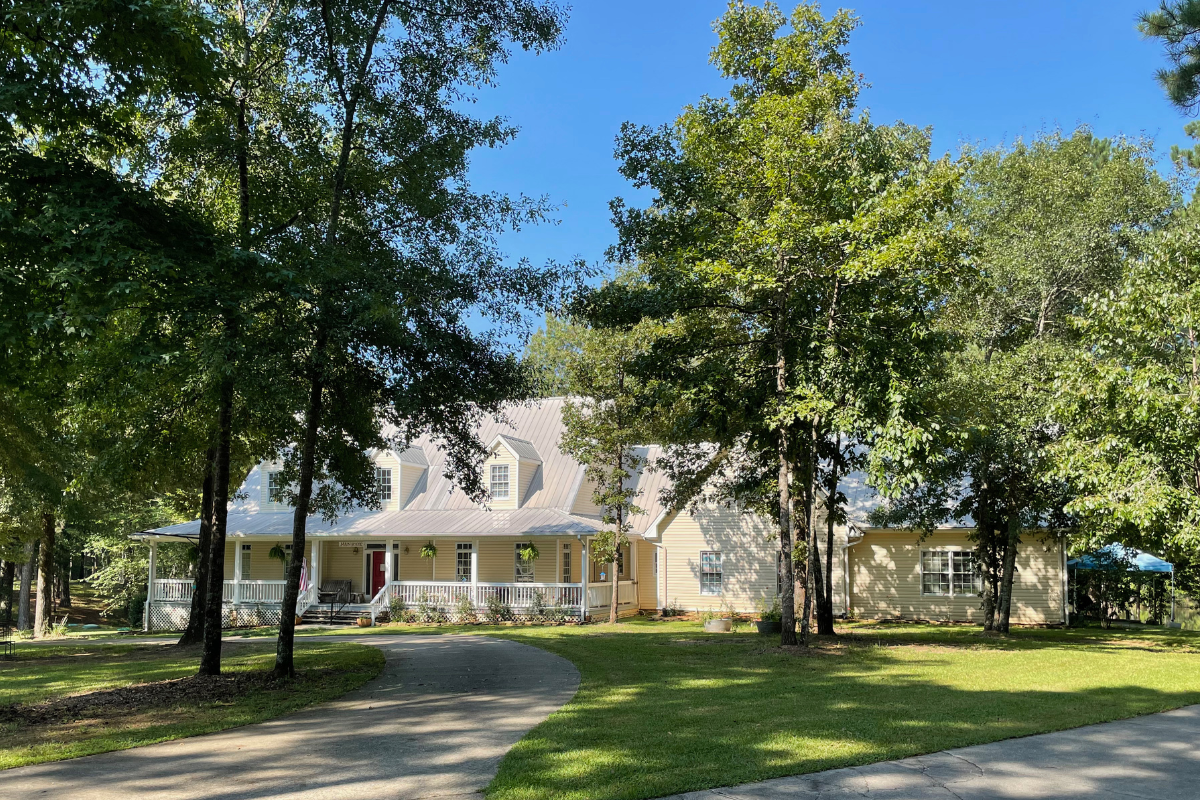For many individuals who are navigating eating disorder recovery — and for the families who love them — the treatment process can feel confusing and, at times, overwhelming. Questions often arise, such as:
What does treatment actually look like? Who will be involved in my care? What does nutrition therapy mean? What role does a dietitian play in recovery from an illness that’s as emotional and psychological as it is physical?
These are understandable concerns. The idea of working with a dietitian can bring up anxiety or even mistrust — especially when food and body image are such sources of fear and control. However, eating disorder dietitians are not the same as nutritionists or wellness coaches in everyday life. Their work extends far beyond meal plans, food groups, and nutrient intake. These specialists play a vital role in helping individuals heal their bodies and rebuild their emotional and psychological relationship with food, eating, and self-nourishment.
Why Dietitians Matter in Eating Disorder Care
Eating disorders impact both the body and the mind. Malnutrition, restriction, bingeing, purging, or other disordered behaviors can disrupt metabolism, hormones, organ function, and cognition — all while deepening emotional distress and disconnection from one’s own body. Eating disorder recovery must therefore address both physical and psychological needs.
This is where a dietitian specializing in eating disorders becomes essential.
Eating disorder dietitians are trained to bridge the gap between medical nutrition therapy and psychological healing.
Dietitians understand how the body responds to malnutrition, restriction, and refeeding, as well as how fear, guilt, and shame influence food behaviors.
Working closely with therapists, psychiatrists, and physicians, dietitians help restore the body’s nutritional stability while supporting the emotional work needed for lasting recovery.
Clinical guidelines consistently recommend the inclusion of dietitians as part of a multidisciplinary treatment team.¹ Research shows that when dietitians are integrated into care — particularly in structured treatment settings like Magnolia Creek — individuals experience improved nutritional intake and healthier weight restoration outcomes.² Yet, despite this evidence, many eating disorder treatment programs still underutilize dietitians, revealing a gap between research and practice.³
What an Eating Disorder Dietitian Actually Does
Unlike general dietitians who focus on meal planning, disease management, or weight management, eating disorder dietitians take a trauma-informed, psychologically aware approach. Their role involves multiple interconnected layers of care:
1. Comprehensive Nutritional + Medical Assessment
A dietitian evaluates nutritional status, lab work, weight trends, and potential complications such as refeeding syndrome, bone density loss, or electrolyte imbalances. They also assess eating patterns, energy availability, and overall medical stability — all crucial in preventing serious medical risks associated with disordered eating.¹
2. Nutritional Rehabilitation + Meal Normalization
Recovery involves re-establishing regular, adequate, and flexible eating. Dietitians design individualized meal plans that restore balance while addressing fear foods, rigidity, and avoidance behaviors. Over time, the structured approach gives way to intuitive, trust-based eating.
3. Healing the Relationship with Food
A hallmark of eating disorder dietitians is their ability to work with the emotions and beliefs tied to eating. They explore food-related fears, perfectionism, and body image concerns while helping individuals reconnect to hunger and fullness cues. In this way, food becomes not a source of distress but a means of self-care and connection.
4. Collaboration with the Treatment Team
Effective treatment depends on communication. At Magnolia Creek Treatment Center for Eating Disorders in Alabama, dietitians coordinate with therapists, psychiatrists, physicians, and family members, ensuring that nutritional progress aligns with psychological readiness. They may also flag medical concerns that could impede therapeutic work — such as when malnutrition intensifies anxiety or cognitive rigidity.
5. Family + Meal Support
In family-based or adolescent treatment, dietitians educate parents on how to support recovery during meals and daily routines. They offer guidance on creating safe eating environments, reducing pressure, and reinforcing recovery goals with compassion and structure.
Why the Dietitian’s Role Is Sometimes Overlooked
While the research underscores the value of dietitians in eating disorder recovery, their role is still inconsistently integrated in treatment settings. One survey found that only about one-third of treatment manuals explicitly recommend dietitian involvement, despite widespread agreement on its importance.³ In part, this stems from historical emphasis on psychotherapy over medical nutrition therapy and from limited dietetic resources in community settings.⁴
Still, emerging research continues to affirm the necessity of dietitians in improving treatment outcomes. In a 2021 systematic review, inclusion of a dietitian in outpatient care was linked to improved nutritional status and better adherence to recovery plans.² Similarly, a 2024 study found that lack of dietitian resourcing remains a critical barrier to comprehensive care.⁵
What to Expect When Working with an Eating Disorder Dietitian
If you or your loved one is beginning treatment, it can help to know what working with a dietitian typically involves:
Initial assessment – A deep dive into medical history, eating patterns, lab work, and personal challenges around food and body image. At Magnolia Creek, every client undergoes a comprehensive assessment by a registered dietitian within 48 hours of entering treatment.
Collaborative goal setting – Goals may include nutritional stabilization, safe weight restoration, increased food variety, or improved body image.
Ongoing sessions – Regular check-ins to monitor physical health, emotional progress, and evolving recovery needs.
Psychological integration – Addressing emotional triggers tied to food and eating through reflective, supportive dialogue.
Care coordination – Communication with therapists and physicians to ensure a unified, holistic approach.
Importantly, a qualified eating disorder dietitian will never focus on weight loss or “clean eating.” Instead, they emphasize nourishment, body respect, and recovery-oriented nutrition that supports both physical and emotional well-being.
A Path Toward Wholeness
Healing from an eating disorder requires more than willpower or insight — it requires re-learning how to nourish body and mind together. Eating disorder dietitians stand at that intersection. They help teach the body to trust food again and the mind to release the fear attached to it. Their work is as much about emotional healing as it is about physical restoration.
At Magnolia Creek, registered dietitians work closely with our clients from the beginning of their treatment, from comprehensive assessments to individual nutrition sessions, supported meals, and personalized meal plans. Our dietitians play a critical part in helping our clients rebuild their relationships with food and lay the foundation for sustained recovery.
If you or a loved one is struggling with disordered eating, you don’t have to suffer alone or in silence. Contact Magnolia Creek today to learn more about our treatment programs and take your first step toward healing.
References
Jeffrey, S., & Heruc, G. (2020). Balancing nutrition management and the role of dietitians in eating disorder treatment. Journal of Eating Disorders, 8(1), 64.
Yang, Y., Conti, J., McMaster, C. M., & Hay, P. (2021). Beyond refeeding: The effect of including a dietitian in eating disorder treatment. Nutrients, 13(12), 4490.
McMaster, C. M., Fong, M., Franklin, J., & Hart, S. (2021). Dietetic intervention for adult outpatients with an eating disorder: A systematic review and assessment of evidence quality. Nutrition Reviews, 79(8), 914-930.
Heruc, G., & Jeffrey, S. (2020). Advances in the dietetic management of eating disorders. Cutting Edge Psychiatry in Practice.
Roberts, E., Watts, M., Riley, S., & Hart, K. (2024). Scoping survey of dietetic resourcing for eating disorders: Why is the dietitian’s role marginalised in community eating disorders? General Psychiatry, 37(6), e101604.














































